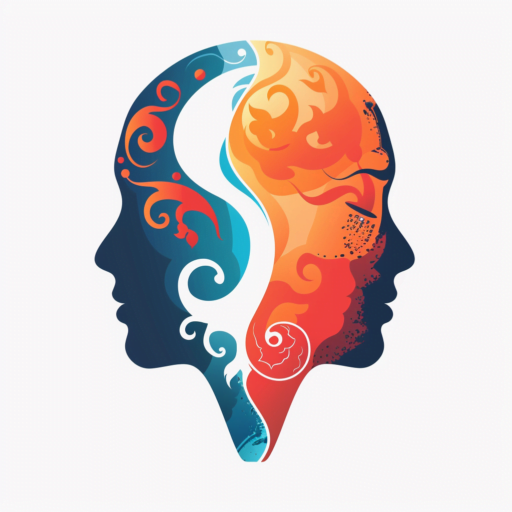Book Appointment Now
Is Good Luck A Wish? Exploring the Concept of Luck and Wishes
Is good luck just a wish or something more? Explore the history, psychology, and science behind the concept of luck and the power of wishing others well. Discover how cultivating a positive mindset, preparing for opportunities, and surrounding yourself with supportive people can help you create your own luck. Learn the importance of spreading kindness and encouragement to foster a more positive and lucky world for everyone.

Have you ever wondered if wishing someone “good luck” actually makes a difference? The concept of luck and the power of wishes have been a part of human culture for centuries. In this article, we’ll explore the relationship between good luck and wishes and examine whether they hold any real power.
What is Luck?
Luck is often defined as a force or influence that brings about positive or negative outcomes in a person’s life. It is commonly divided into two types:
- Good luck: Favorable outcomes or experiences that seem to occur by chance
- Bad luck: Unfavorable outcomes or experiences that appear to be beyond one’s control
Luck is often associated with chance and probability, suggesting that certain events occur randomly without any discernible cause. However, many people perceive luck as a force or influence that can be attracted or repelled by certain actions, beliefs, or superstitions.
The History of Wishing Good Luck
The practice of wishing others well has ancient origins, with various cultures developing their own traditions and rituals related to good luck. For example:
- In ancient Rome, people would say “Quod bonum, faustum, felix, fortunatumque sit” (May it be good, fortunate, happy, and prosperous) to wish others well.
- In many Asian cultures, the phrase “加油” (jiāyóu) is used to encourage others and wish them success, literally translating to “add oil” or “refuel.”
- The phrase “good luck” itself has evolved in different languages, such as “bonne chance” in French, “buena suerte” in Spanish, and “viel Glück” in German.
These traditions demonstrate the universal human desire to support and encourage others in their endeavors.

The Psychology Behind Wishing Good Luck
The power of positive thinking and its effect on luck has been the subject of much research in psychology. Studies have shown that individuals with a positive outlook tend to be more resilient, adaptable, and successful in various aspects of life.
One explanation for this phenomenon is the placebo effect, where believing in the power of luck can influence outcomes. When people feel supported and encouraged by others’ well-wishes, they may experience a boost in confidence and motivation, leading to improved performance.
Superstitions also play a role in perceptions of luck, with many people engaging in rituals or carrying lucky charms to attract good fortune. While these practices may not have any direct effect on outcomes, they can provide a sense of comfort and control in uncertain situations.
Is Good Luck a Wish or Something More?
While wishes for good luck can be powerful in their own right, it’s important to recognize the difference between luck and wishes. Luck is often the result of a combination of factors, including:
- Opportunity: Being in the right place at the right time
- Mindset: Having a positive outlook and being open to new experiences
- Action: Taking steps to prepare for and seize opportunities when they arise
In contrast, wishes are passive expressions of hope or desire without any direct action. Relying solely on wishes for good luck may lead to disappointment and a lack of personal agency.
Real-Life Examples of Good Luck and Wishes
There are countless stories of people who attribute their success to good luck wishes from others. For example:
- J.K. Rowling, the author of the Harry Potter series, has spoken about the importance of the encouragement and support she received from her family and friends during her early writing career.
- Michael Jordan, one of the greatest basketball players of all time, famously wore his lucky University of North Carolina shorts under his Chicago Bulls uniform for good luck.
These anecdotes demonstrate the power of positive thinking and the impact of social support on individuals’ perceptions of luck.
The Science Behind Luck and Wishes
Research in psychology has explored the various factors that contribute to perceptions of luck and the effects of positive thinking on performance. Some notable findings include:
- A study by psychologist Richard Wiseman found that individuals who considered themselves lucky tended to be more open to new experiences, more optimistic, and more likely to see opportunities in adversity.
- Research on the placebo effect has shown that believing in the power of a treatment or intervention can lead to measurable improvements in outcomes, even when the treatment itself is inactive.
- Confirmation bias, the tendency to seek out information that confirms one’s existing beliefs, can reinforce perceptions of luck and the effectiveness of superstitious rituals.
These studies suggest that while luck may not be a tangible force, the power of belief and positive thinking can have real effects on individuals’ experiences and outcomes.
How to Increase Your Luck (Without Relying on Wishes)
While wishing others well is a valuable social practice, there are several steps individuals can take to increase their own luck without relying solely on wishes:
- Cultivate a positive mindset: Focus on the opportunities and possibilities in life, rather than dwelling on obstacles or setbacks.
- Prepare for opportunities: Develop your skills, knowledge, and networks so that you’re ready to seize opportunities when they arise.
- Surround yourself with supportive people: Seek out friends, family, and colleagues who encourage your success and provide positive reinforcement.
- Practice gratitude: Regularly acknowledge and appreciate the good fortune and blessings in your life, no matter how small.
By taking an active role in shaping your own luck, you can increase your chances of success and fulfillment.

The Importance of Wishing Others Well
While wishing others good luck may not directly influence outcomes, it serves an important social and emotional function. When we express our support and encouragement for others, we foster a sense of community and belonging.
Wishing others well can also have a positive impact on our own well-being. Research has shown that engaging in acts of kindness and positivity can boost our own happiness and life satisfaction.
| Benefits of Wishing Others Well | Examples |
|---|---|
| Strengthens social bonds | Expressing support for a friend before a job interview |
| Boosts morale and motivation | Encouraging a teammate before a big game or presentation |
| Spreads positivity and kindness | Wishing a stranger a good day or offering a compliment |
| Increases personal well-being | Feeling good about making others feel supported and valued |
By making a habit of wishing others well, we can create a more supportive and positive environment for everyone.
Conclusion
In exploring the relationship between good luck and wishes, we’ve seen that while wishes alone may not directly influence outcomes, they play an important role in fostering a positive mindset and supportive environment. By combining the power of positive thinking with effort and action, individuals can increase their chances of success and fulfillment.
As we navigate the challenges and opportunities of life, it’s important to remember the value of wishing others well. By spreading positivity and encouragement, we can create a more supportive and lucky world for everyone.
So the next time you wish someone “good luck,” know that you’re not just expressing a simple sentiment – you’re contributing to a powerful force for positive change.



